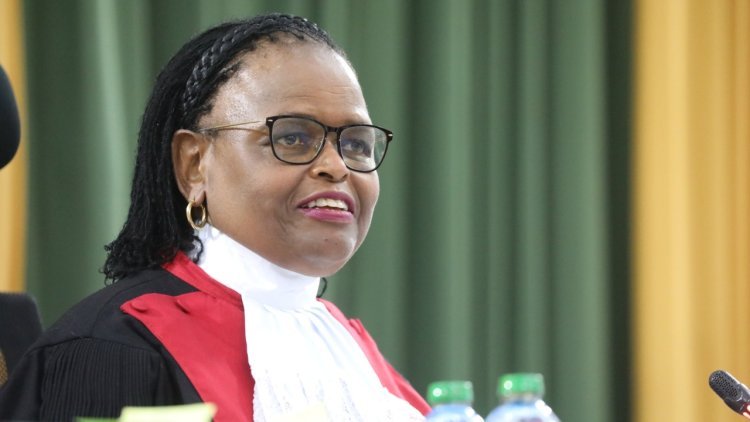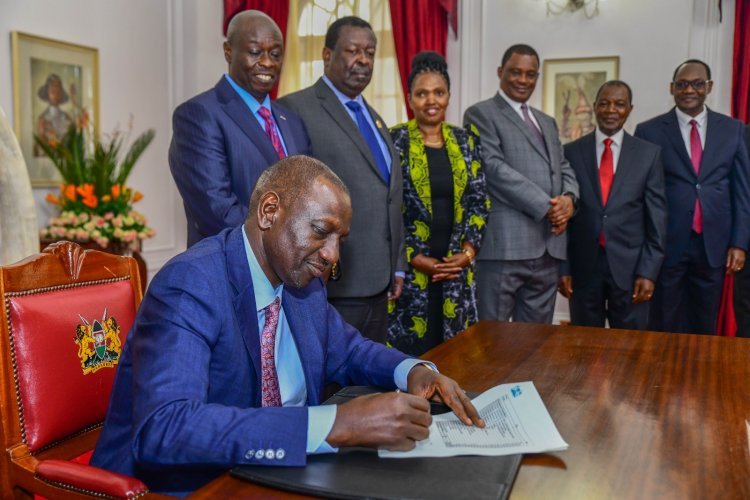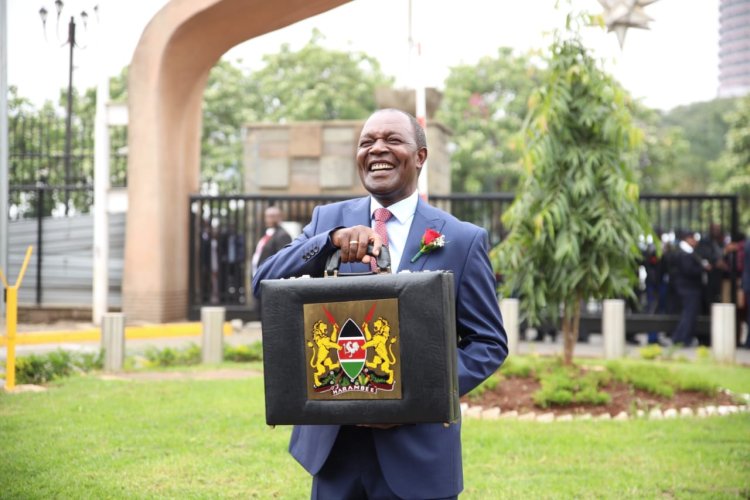CJ Koome Appoints 3-Judge Bench To Determine Fate Of Finance Act
The appointment of the three-judge bench is evidence of the degree of importance in this case since it is touching on an Act that the Kenya Kwanza regime is relying on

Chief Justice (CJ) Martha Koome on Tuesday, July 18 appointed a three-judge bench that will be tasked with hearing and determining the petition filed against the Finance Act, 2023.
Justice David Majanja will be the judge to preside over this case, thus taking the lead in terms of overseeing the proceedings.
He will be supported by Justice Lawrence Mogambi and Justice Christine Meori in the three-judge bench which will set a date when the matter will be mentioned for hearing.

President William Ruto signs Finance Bill 2023 into Law at State House, Nairobi on Monday, June 26, 2023. /PCS
The appointment of the three-judge bench is evidence of the degree of importance in this case since it is touching on an Act that the Kenya Kwanza regime is relying on, in terms of its proposals, to raise much-needed revenue to fund its development projects in the form of taxes.
The High Court had refused to lift conservatory orders suspending the implementation of the Finance Act 2023, with Justice Mugure Thande ruling that the controversial act will proceed to a full trial.
“Pursuant to article 165(4) this matter is certified as raising a substantial question of law and the file is hereby transmitted to the Chief Justice for assignment of a bench of not less than three judges to hear and determine the petition,” Justice Thande ruled on Monday, July 10.
The respondents in the petition had sought abeyance (temporary suspension) of seven days to move to the Court of Appeal.
The respondents who included Treasury Cabinet Secretary Njuguna Ndugu and the Attorney General's office had argued that the Legislature, Executive and Judiciary would face uncertainty during the time the Finance Act 2023 would remain suspended.
It was further argued that the orders which suspended the implementation of the Finance Act 2023 would likely cripple the government in relation to revenue mobilisation and expenditure approval, thus the respondents' prayer to the High Court to exercise its secondary jurisdiction and suspend the conservatory orders.
The judge had on Wednesday, July 5 extended the orders which stop the National Treasury from implementing the controversial Act until Monday, July 10.
She heard submissions from Busia Senator Okiya Omtatah, Rarieda MP Otiende Amollo, Solicitor General Shadrack Mose, and Lawyer Githu Muigai who was representing CS Ndung'u.
Muigai had argued that the government will soon be unable to pay international commitments as well as pay salaries of government employees, accusing Omtatah of misleading the court into believing there was no consequence in extending the suspension until the petition is determined.
However, Amollo rebutted by stating that the government can still collect taxes through the use of the Finance Act 2022 which does not include contentious provisions such as the 16 per cent Value Added Tax (VAT) on Fuel and Housing Levy.
The Treasury on its part warned that should the petitioners win in this case, it would cost Kenya Ksh211 billion.







